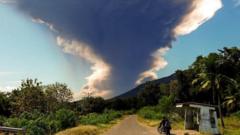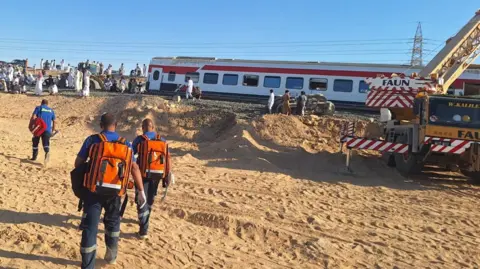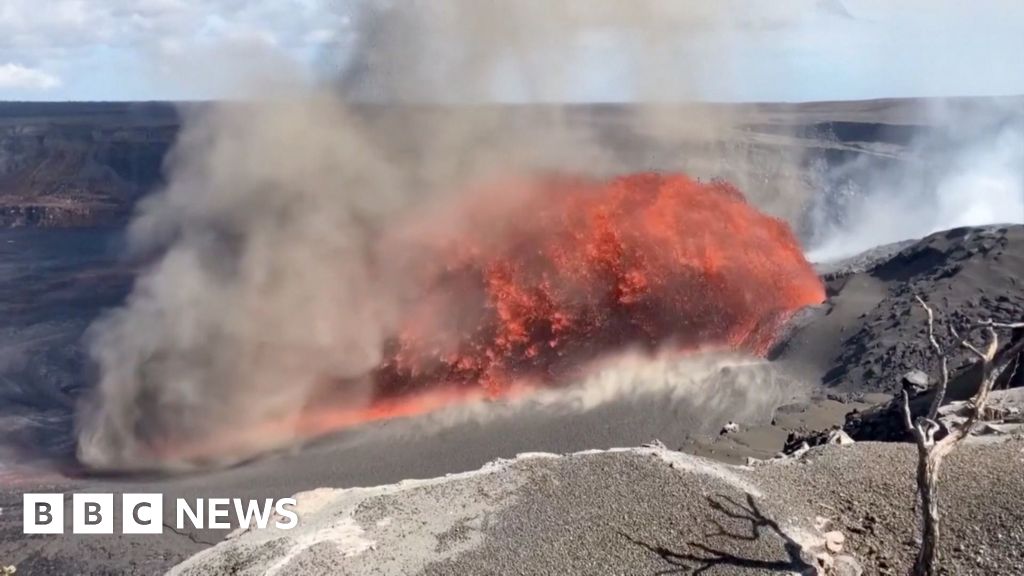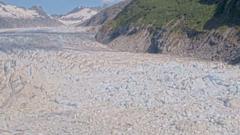Indonesia's Mount Lewotobi Laki-laki has erupted fiercely once again, ejecting a massive ash cloud that reached up to 18 kilometers (11 miles) into the atmosphere, prompting panic among residents who are fleeing the vicinity. Since the volcano on Flores Island began its latest explosive activity, which started on Monday morning, there have been no reported casualties. However, the volcano has been placed on the highest alert level following a series of eruptions over the past three weeks.
On Monday, at least 24 flights to and from Bali, a nearby resort island, were canceled, though some services resumed the following day, reducing the industry's impact. Geology agency chief Muhammad Wafid remarked that the ash column recorded at 11:05 AM (03:05 GMT) was the most significant since November last year, raising alarms for potential dangers, particularly concerning air travel.
In an initial eruption accompanied by a loud rumble, authorities expanded the exclusion zone to a 7-kilometer radius from the volcano's vent. They also issued warnings for potential lahar floods, which are dangerous mudflows that may occur if heavy rain coincides with the eruptive activity.
The twin-peaked Lewotobi Laki-laki experienced a second eruption at 19:30 on Monday, leading to more ash clouds and lava shooting up to 13 kilometers into the air. By Tuesday, the volcano erupted a third time, though at a lesser intensity. Videos circulating on social media depict streams of glowing red lava spewing from the volcanic peaks, while locals struggle to evacuate, with over 4,000 residents reported displaced according to local disaster management officials.
For those who chose to remain despite the warnings, there is a growing concern about access to clean water, food, and protective masks as local authorities report that the community has been enveloped in thick layers of volcanic ash. Paulus Sony Sang Tukan, a leader in Pululera village, located about 8 kilometers from the volcano, voiced his concerns regarding the accessibility to potable water amidst fears of contamination due to the ash fallout.
Indonesia, situated on the Pacific "Ring of Fire," frequently experiences volcanic eruptions and earthquakes due to the movement of tectonic plates. The recent eruptions of Lewotobi Laki-laki, which has shown substantial activity throughout this year, have thankfully yet to result in fatalities. However, a severe eruption last November claimed at least ten lives and necessitated the evacuation of thousands from their homes. The Indonesian term "Laki-Laki" translates to "man," and it is paired with the adjacent, more placid, yet taller volcano, Perempuan, which means "woman."



















